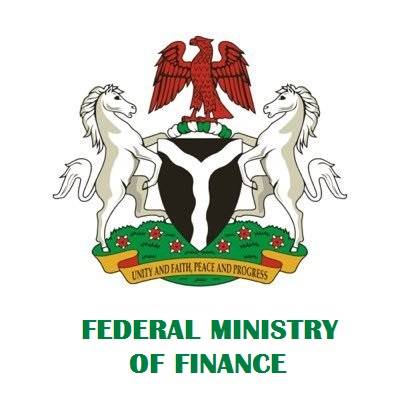When we talk about public finance management, most people act as though it isn’t a piece of useful information. But hey, it is public funds and that makes it your business because you are part owner of these funds. Therefore, you need to know what happened to them. What is public financial management, what are the objectives, principles, elements, and PFM system, in Nigeria, course, PDF? These questions are what I will be answering in this post.
What Is Public Financial Management
Most times the question of what public financial management is gets some individuals confusing. Well here is what PFM means. It is all components of a country’s budget process ranging from its annual budget to strategic planning. And medium-term expenditure framework down to its reporting, accounting, revenue management, procurement, audits, oversights, monitoring, and evaluation.
This is oftentimes a joke to most people. But the truth is that this financial management will be of a lot of value to any country that applies it well and effectively. The system aids bring stability to a country as well as reduces poverty. Many democratic countries need this management system for macroeconomic stability and effective use of resources.
A good public financial management system should be able to prevent corruption as well as promote aid effectiveness. However, a bad and weak one hampers development and increases corruption.
The effective administration of funds by the government including all government activity. And its budget-making process or cycle is all basics you need to know about what is public financial management.
Objectives of Public Financial Management
For any financial institution to achieve its desired ambition, the institute must possess an aim and also objectives. Showing you that the management is among the few ‘here to stay’ institutes, it possesses many aims and objectives that it hopes to achieve.
Accessing public financial management, you will need to define its end objectives firstly; meanwhile, its outcome takes measured by its performance. Objectives of public financial management include:
Ensure operational efficiency, to achieve maximum value for money in the delivery of services.
The maintenance of an aggregate fiscal discipline is much required most times this is been regarded as the most important objective of public funds management. The aggregate level of tax collection and public spending are consistent with aims for the fiscal deficit, and also not to generate unsustainable levels of public borrowing.
.Public financial management aims at ensuring that people’s resources are well allocated to the specified strategic priorities. By so doing, the efficiency of allocates is achieved.
. The management system should be seen following due process. Such doing they promote the virtues of transparency, accountability, checks and balance, and public accessibility of information.
Principles of Public Financial Management
Principles of public financial management can be classified into six forms namely; accountability, probity, equity, prudence, transparency, and democratic contest. The following are the six principles of public financial management;
#1. Accountability
Accountability is one of the principles of public financial management. This principle simply implies that those individuals that are handed over the responsibility of dealing with people’s funds regularly should be called upon to be accountable for funds. These individuals handling the public fund must also be put in the position of detailing the use of the funds. You can ensure there’s accountability through the audit process and the legislative reviews.
#2. Probity
Probity is also one of the principles of public financial management. Here, all legislators and administrators are advised to remember that these funds are not for their personal use because it is at their disposal. Hence, the use of public funds should be with utmost integrity and honesty. Exactly what this principle of financial management wants you to understand.
#3. Prudence
Individuals which are the stewards of these funds should on no account use this particular fund of the public to take unnecessary or undue risks. Be it for their selfish interest or that of the public isn’t acceptable. The funds are specifically for public welfare.
#4. Equity
The government on its part should be fair in the distribution and rising of these funds. This principle of public funds management states that “people should be made to feel the same, and also to be treated the same in similar circumstances in the situation of raising and spending taxes”.
#5. Transparency
Transparency means the doings and activities of the government in the case of handling these funds are open and visible to all. The activities they indulge in to raise these funds should as well be brought to the eyes of the people. Like what our leaders do with the public funds in the assigned areas.
#6. Democratic Consent
This principle of financial management states that “the consent of the governed must be fully represented”. Meaning that before any major action is taken regarding these public funds the owners, which are the people should be informed as well as follow their will. This includes no taxation without representation, spending must also go through democratic approval.
Elements of Public Financial Management
For public finance management to be effective in its work, it will require elements. Those executive elements of the public financial management are what we call in this aspect the elements of public financial management.
Having the right executors under this element is also a very advantageous concept. The elements of public financial management need the best individuals it can get to affect its form in the right cause. Some of these elements include;
#1. Institutional and Legal Framework
An organized government will be set up to oversee the implementation and facilitating of effective and efficient public service arrangements. Standards, codes, standards, practices, and institutions in place will be set up appropriately.
#2. The Value System
Funds that are put in trust to the government by the people should be used very well. Responsible and a sincere approach to the manner of planning services as well as its execution and reporting activities should be by the government to its people. The interest of the public should be a priority in any action the government takes regarding the public funds. Most countries consulting services handle these activities.
#3. Climate Reform
Identification and acknowledgment that positive change is always the best is also a real commitment for the major stakeholders to implement all necessary reforms. Reforming the system of public fiancé management means its betterment for the sole benefit of the people.
#4. Fiscal Framework and Policy
You already know that the major output of the system is its budget. Which also serves as a means by which public policies receive finance. A credible budget should reflect anticipates of the financial impact of the government policies and as well as crucial in stating how it uses these resources.
#5. Performance Management
Budgets must be thorough in reporting, monitored, and managed to attain their desired results. When these budgets are thoroughly checked, their implementation on both an organizational level and in macro terms will be successful. The expected results of budgets include value for money, effective and efficient service delivery, and financial compliance.
#6. Capacity and Capability
Right sources made available for supporting the application of every single aspect of the management most especially in the terms of systems as well as individuals are very important. If personnel with skills are not the ones to carry out these activities, as well as implement them, the management will result in a failure.
#7. Reporting
The right individuals as executors in the management are important in the empirical evidence that highlights the positive relationship between the fiscal sustainability actions and the fiscal transparency degree. Hence, proper reporting is the first step to transparency and accountability for fiscal actions.
Public Financial Management System
The public financial management system consists majorly of the public sector with a little population of its administrators. Resource generation, allocation, and expenditure management are essential in the public financial management system.
Some of the public financial management system’s basic subject matter forms include:
- Public revenue
- Public expenditure
- Financial administration
- Public debt
- Federal finance
- Size government
The composition and complexity of these forms of the public financial management system. Will, however, determine the success of these operations in the public sector of the economy.
The government finance statistics manual in 2001 dis-aggregates the general government into sub-sectors which are the central government, state government, and the local government. This concept of general government does not include public corporations. However, the general government plus the public corporations comprise the public sector.
Public financial management consists of the people who are majorly the owners of the public funds. The utilization of these funds is the work of the government majorly why they are included in the public sector.
Public Financial Management in Nigeria
We must know what the management does in a developed country as well as its benefits as well as the civil unrest in the underdeveloped countries because of lack of it. African countries strengthening their economies should also lead to good governance so that the financial management could be strong.
Read also: Accounting and finance difference, careers and courses
Good governance has always been a backbone for the management while public misuse of public funds is the result of financial chaos. And in 2018 a conference by the chartered institute of public finance and accounting the conference details was about the situation of the public finance management in Nigeria and how to reform it to serve its initial purpose.
The whole institute of public finance management has been corrupt and unaccountable before this conference. That is why the conference holds to discuss the public finance management specific successes and challenges in Nigeria. Supervising the institute thoroughly ranging from its financial reporting and scrutiny to promoting service at all levels to budget execution.
A well-rounded view of the system approach promotes will enable public finance managers to understand where they need to channel their efforts for betterment in service delivery, transparency, and accountability.
Read also: Financial risk and its management
Some of the lacking in the proper administration of the public finance management in Nigeria include lack of accounting, lack of transparency, misuse of public funds, no service delivery in the three levels of government, corruption, bad decisions, and bad governance.
Critical standards that should apply by any reforming public finance management to meet the standards of good public finance management suitable for a state. And, reforms include Good governance, high and quality accounting standards, effective use of resources, and an improvement in accountability, and transparency.
Read also: Corporate finance complete guide +free courses
If these reforms are visible in the service, then the service of the public finance management will improve and also have better outcomes not just for our country but for people’s lives.
Boosting the people’s self-confidence, trust in the government, and a stable business environment. Is also one of the benefits good public finance management will bring to Nigeria. While a weak one will only result to waste, corruption reduces the ability to collect taxes, bad impact on services, and bad investor perception of the country.
Read also: Finance meaning and importance
The international public sector accounting standards (IPSAS) are the only international body reporting standards for the public sector. A recognized set of the independent as well as the international board of public sector finance experts that aids public sector bodies address particular key public sector issues
Although there have high awareness about the IPSAS as well as high demand for their services and training, however, progress is slow. A strong PFM, as well as IPSAS, is the only solution to strengthen the Nigerian economy and development.
Public Financial Management Course
The public financial management course is a study in schools, workshops, and business programs. And also, universities. Depending on your need for knowledge of public finance management, you can enroll in your desired public financial management course.
These public financial management courses are available online. Moreover, their topics and sub-topics are a study on daily bases sometimes for months. The courses include
The public financial management course to study drafted from schools and workshops running these courses. Also, it is a guide for what you should expect in studying public financial management courses.
Pdfs on Public Financial Management
PDFS on a normal serves the purpose of knowledge enhancement. The PDFS on public financial management will also throw more light on everything you need to know on the topic as stated in this post with more.
- A guide to public funds. PDFS on public financial management
- Public financial management
- Economy and public funds
- The international handbook PDFS on the public financial management
PDFS on public financial management are backups for a versed knowledge on the topic. You can choose to download these PDFS on public financial management.
What are the stages of public financial management?
The revenue collection, budget creation, budget implementation, accounting and reporting, and audit and oversight phases make up the PFM cycle.
What are the benefits of public financial management?
Public financial management applies the principles of fiscal restraint, legitimacy, predictability, transparency, and accountability to strengthen and reform public finances with a focus on economic and governance reform programs of developing and transitional economies.
What is the aim of public financial management?
Enhancing the control of financial flows via the government and its agencies for the purposes of the government in the contemporary economy is the goal of public financial management.
Who is the father of public finance?
The founding father of public finance is Richard A. Musgrave. The “Father of Tax Reforms” is how Raja Chelliah is frequently referred to. In the above link, you can read about the Indian taxation system’s types, GST and VAT rates, objectives, restrictions, and Laffer curve.
What is the role of public finance?
The purpose of public finance is to protect the country’s economy. The national budget, tax revenue, investment, national debt, and other elements of public finance all contribute to the expansion and development of the country.
Conclusion
The knowledge of management is essential to everyone because you need to be aware of how the public funds are managed. Simply meaning I recommend this post for every citizen of a country up to legal age to engage in and be active.
FAQs On Public Financial Management
What are the objectives of public financial management?
PFM’s major responsibilities include ensuring overall budgetary discipline, resource allocation by policy goals, and effective public service delivery.
What role does public finance play in society?
Regulation of the economy. Generally, the government uses public financing to combat inflation and deflation. During inflation, indirect taxes and general expenditures are reduced, but direct taxes and capital expenditures are increased. It is in charge of collecting internal public debt and mobilizing funds for investment.
- Financial Sector: All you should know (+ Detailed Examples)
- PUBLIC LIABILITY INSURANCE COVER: What Does Public Liability Insurance Cover?
- PUBLIC LIABILITY INSURANCE: Meaning, Quotes, Cost & Best UK Practices
- Social Marketing Strategy: Definition & Examples
- EMPLOYEE EVALUATION: How to Write Employee Evaluation Form
- PAY OFF MORTGAGE OR INVEST: How to Make the Right Choice






